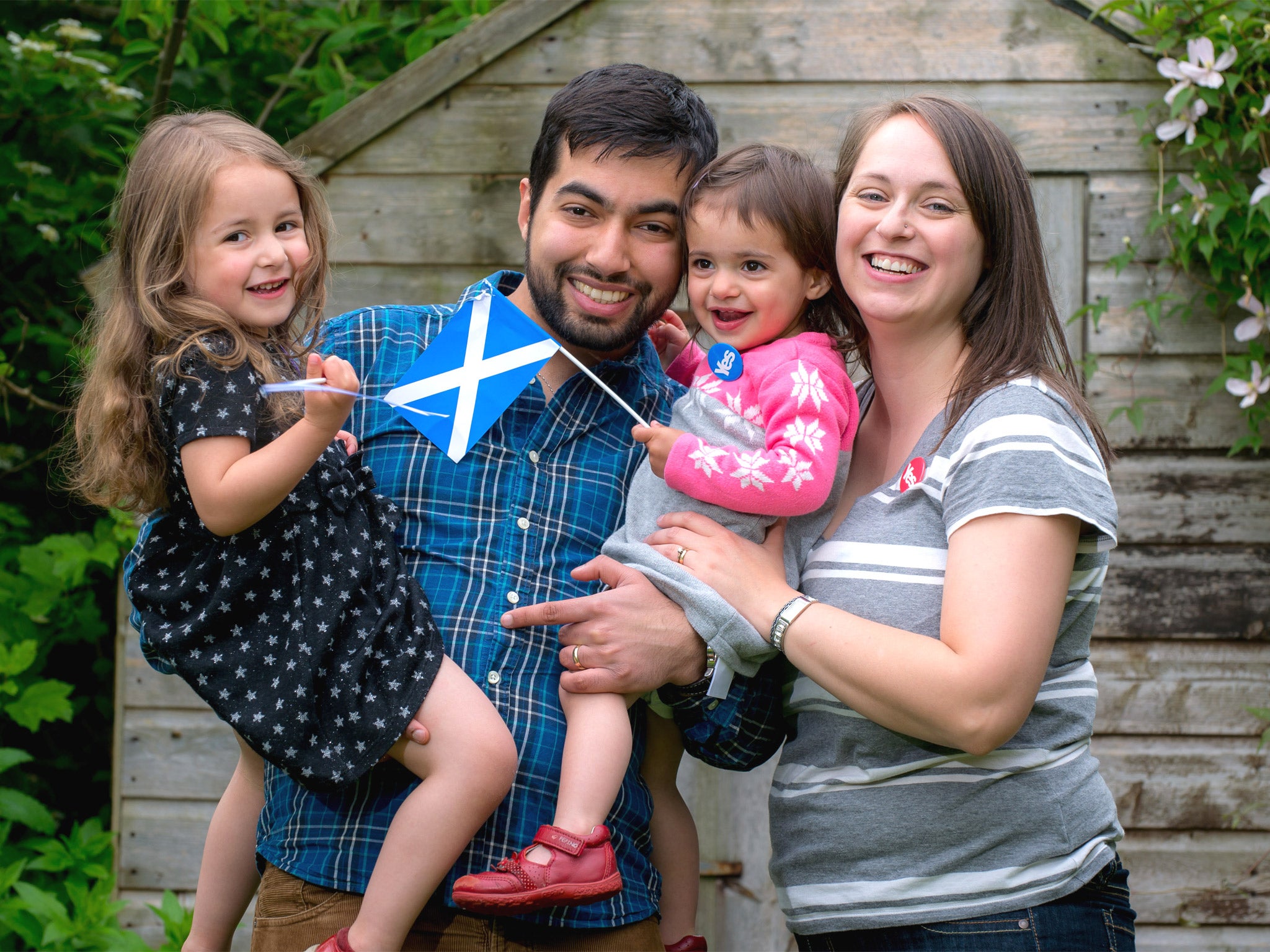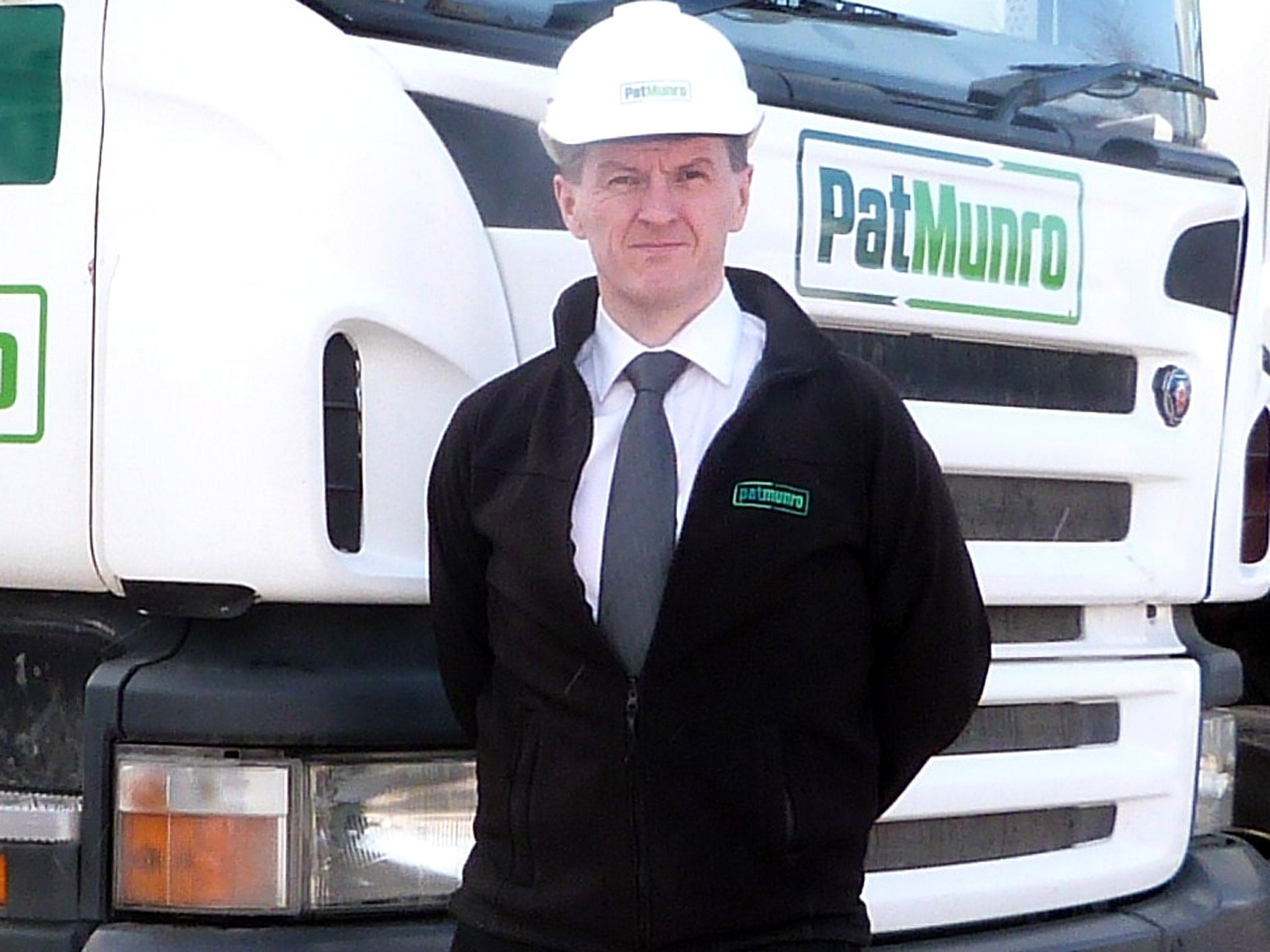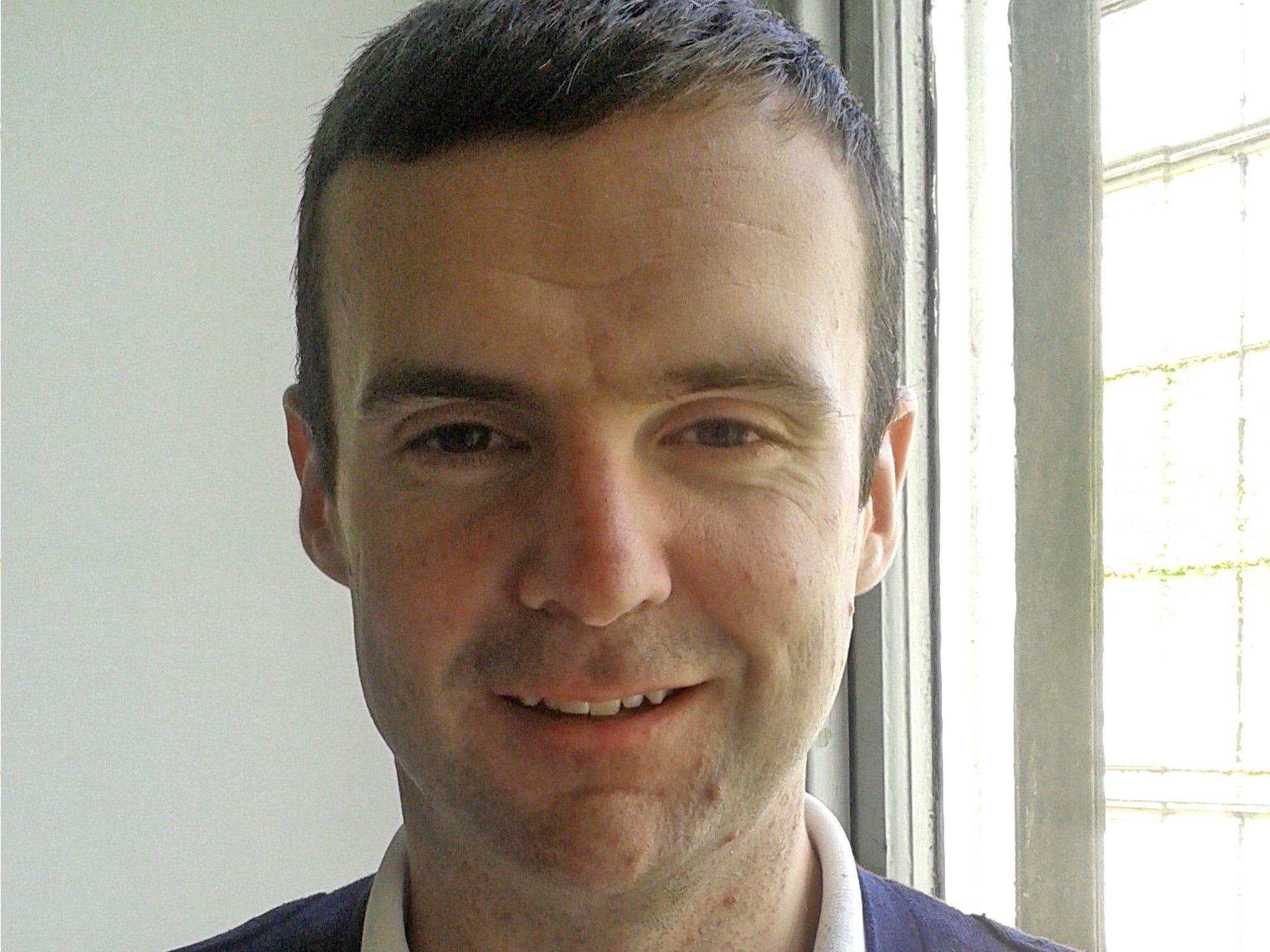Scottish independence: Former pro-union voters explain why they changed their minds to the Yes vote
Former ‘No’ voters explain why they will now be backing independence on 18 September

Fiona Sarwar, 31, lives in Coupar Angus, Perthshire. She was born in England to Scottish parents and moved back as a teenager. Previously undecided, she decided to vote Yes in February.
“I’ve been interested in Scottish independence since I moved to Scotland. The first essay I wrote in history was about devolution. But I didn’t really decide until the start of this year, when I ordered a copy of Scotland’s Future.
“Reading the white paper ignited something in me. I felt like it was really positive; a breath of fresh air; something different in politics that we hadn’t had for a long time; a real sense of direction.
“Basically somebody was saying: ‘This is the possibility; this is how it could be – do you want to buy into this?’ And for me, from then on it was a yes.
“The step into the unknown is a concern and is something I think about now and again, but the more involved I’ve become with the campaign and the more I’ve been able to meet the people directly involved with it has given me an increasing sense of trust.
“Scotland’s future is closer to their hearts and minds because they’re here, living and working with us. And ultimately we are governing and running as a country as it is, so it’s not going to be a massive leap.
“I’ve also felt there’s been a lot of negativity from the No campaign. I think at the start they didn’t really take it seriously. They didn’t think there would be this much of a challenge, because in the past it hasn’t managed to stand up. Previously they’ve not managed to get it past a niche group of people who’ve wanted independence all their lives. That has really changed – I’d say that the Yes campaign is as close to a grass roots social movement as I’ve seen.
“There’s definitely a sense of identity in voting for independence. It’s an opportunity to say that your national identity doesn’t necessarily have to rest on where you were born or how many generations you go back.
“If you live here, you’re voting and that’s really huge for me. My husband is from England, our children are mixed race, he’s British Pakistani – this is about saying you get to create this future; to create this identity.”
Lauren Reid (below), 26, an educational outreach worker who lives in Glasgow, decided to vote Yes in February having previously been against independence.
“When the independence debate started, I thought it was so far-fetched and whimsical. I’m patriotic, but I’ve never seen myself as a nationalist, so I very much had the attitude of: ‘If it’s not broke, why fix it? Why make a very small nation even smaller?’
“At first I agreed with the No campaign, thinking it was quite risky and not worth it.
“But then I started getting engaged in debates. The turning point was going along to one in my local area put on by the Glasgow Skeptics society and it completely changed my opinion. The panel had three on the Yes side and three on the No side, and it was like looking at Westminster versus something that could be new and Scottish; people you could relate to. They were talking about things that I actually valued, as opposed to jargon.
“The No panel were all middle-aged, middle class people in suits, and someone from the audience actually asked them to tell them something that would enthuse them to vote No, but none of them could answer it.
“I’ve never been a fan of Alex Salmond. He’s a politician at the end of the day and he’s been in the game a long time. I’m never going to trust him. I’d never want to go out for a drink with him, but at the same time he’s given us this opportunity and I believe him when he says he believes in Scotland. But would I vote for the SNP after a Yes vote? Probably not, but if it’s a choice between an SNP government and a potential Conservative and UKIP government, there’s no competition.
“My message to anyone who’s on the fence right now is: don’t rely on what you see on billboards or hear on the TV. Get out there, ask people questions, ask your local MPs what’s going to happen, and talk to people about it on a local level – because it’s really important to debate it.”
Brian Munro (below), 47, who runs a construction firm based in Alness, Ross and Cromarty, decided to vote Yes last year, having previously been against independence.

“I’ve never been active politically – I’ve voted for every political party, depending on the policies being touted at the time, whichever one I thought suited my family or my business best. I’m a fiercely patriotic Scot, but to me that doesn’t mean that we have to be separate from the UK, because I’ll be Scottish no matter what.
So when it came to independence at first I was basically a No, because I’ve always had a healthy disrespect for the ability of politicians: these days they go to college and learn how to avoid questions and go straight into party politics.
“But when the latest SNP government came in, we started getting invitations to go and speak to them as a business about what was affecting us and were asked whether the money they were trying to invest was actually making any difference on the ground.
“That was a bit of a revelation for me, because we’ve never been visited by any politicians from Westminster of any note and certainly never been asked for our opinions – we’re a small business in a very outlying part of the UK, so we’re not really on the radar.
“That’s when I started thinking maybe if we did have politicians in Scotland who were making decisions, things might work better.
“And when I started looking into it a bit more – into how little say we actually have in the policies that are made – that began to sway it.
“For me this is a business decision – I’ve got no emotional drive for independence and I’m quite happy being part of the UK, if the UK can run better. But with every fact I learned, I moved more and more towards a Yes, because the economic facts are quite staggering as to how much we’ve been either overlooked or disadvantaged by the fact that policies are made on a national basis.”
Gerard Carey (below), 29, a tax accountant who lives in Edinburgh, decided to vote Yes in January having previously been against independence.

“Back in 2012 when they brokered the Edinburgh Agreement, I was probably one of the most militant No voters you could find. To me, it seemed like an Alex Salmond vanity project; that he was probably just trying to get his name in the history books.
“I also thought the Government’s response would be so well-measured and so informed that they would crush it. A lot of the media was very anti-independence, and I thought, ‘Well these guys know what they’re talking about’.
But when I started speaking to a few people, they began to pick a few holes in some of the arguments and I had a eureka moment. George Osborne’s Sermon on the Pound [when he ruled out a currency union] was a big thing for me – I thought the Government had no right to take that hard line position. It sickened me – as a former Labour voter – to see Ed Balls reading a statement prepared by Osborne and the three party leaders aligning under the same banner. I think a lot of Scottish Labour voters switched sides at that point.
“The Better Together campaign has also been very poor – it’s almost as if they want us to leave. They keep shooting themselves in the foot by trying to scaremonger us. Whenever we’re told not to do something in Scotland we’ll just go and do it, so when they’ve tried to put the fear into us it’s completely backfired. It’s given the Yes movement a real shot in the arm.
“There are some wonderful things about Britain they should be focusing on, but from day one it’s just been fear, fear, fear: your mortgages are going to go up, food’s going to go up, bills too... it’s annoyed me that the media hasn’t subjected these arguments to any sort of scrutiny – it seems to go straight from the Government into print.
The UK should be about four strong nations all working to the best of their abilities, but everything’s getting sucked towards London now: resources, money, political emphasis. People in Manchester, Liverpool, Newcastle, Belfast – it seems to be a case of ‘move to London or struggle’. I think the idea we could create a strong Scottish economy might rebalance the United Kingdom.”
Paul Fletcher (below), 53, a management consultant, decided to vote Yes a year ago, having previously been against independence.

“Years ago my brother was an independence supporter and my reaction initially was to laugh at him. I thought it was an anachronism, was all about nationalism and wasn’t really relevant. I felt that Britain stood for something and I was proud to be British. I also had a very cynical perception of the SNP.
“But a year ago I started to do some investigation of the figures involved and it struck me that, contrary to what we’re fed, we’ve actually been paying more into the Exchequer over the last 30, 40 years than we’ve got back. I changed my mind based on concrete figures – but also due to the negativity of the No campaign. I know lots of people who’ve changed their minds to Yes due to the temper of the No debate, which is not about the issues.
“Should we be independent is the question, not can we be – it’s two different questions. Should we be governed by fear or optimism?”
The Westminster Parliament
If Scotland leaves the UK, it is assumed that the 59 Scottish MPs will lose their jobs on 24 March 2016, which the SNP has chosen as the date on which the new country would become independent. That could feasibly deprive Labour of a narrow overall majority.
There have been calls for the election to be put back a year if the Yes camp wins, or for Scotland to lose its Westminster representation immediately.
Immigration and borders
According to anti-independence campaigners, a vote for separation could lead to passport checks between England and Scotland. Nationalists insist the current system, allowing free travel within the British Isles, would remain.
The argument turns on differing interpretations of EU rules for new members: a key difference between the rival camps.
Join our commenting forum
Join thought-provoking conversations, follow other Independent readers and see their replies
Comments
Bookmark popover
Removed from bookmarks